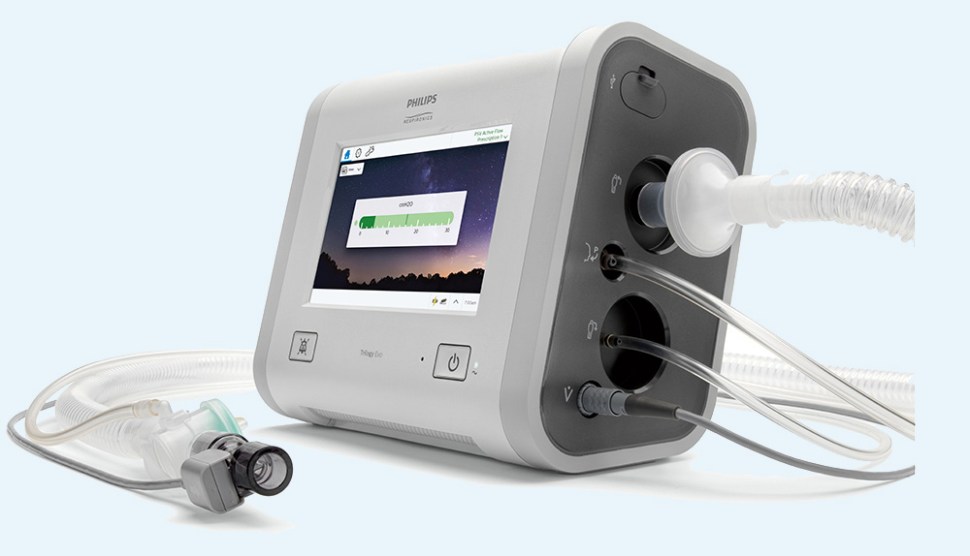
I'm sure the the Trilogy Evo is a fine portable ventilator. But it's kind of pricey and—more importantly—also not available yet. Too bad the next gen project from Newport Medical Instruments failed, isn't it?Philips North America
The New York Times has a story today that you might have missed. Back in 2008, after realizing that the country would be woefully short of ventilators in the case of a big flu epidemic, the federal government announced a contract to design and build a new generation of cheap, portable ventilators. The contract was awarded in 2009 to Newport Medical Instruments, a small ventilator maker in California, and at first the project went swimmingly:
Then everything changed.
The medical device industry was undergoing rapid consolidation, with one company after another merging with or acquiring other makers….In May 2012, Covidien, a large medical device manufacturer, agreed to buy Newport for just over $100 million….Newport executives and government officials working on the ventilator contract said they immediately noticed a change when Covidien took over. Developing inexpensive portable ventilators no longer seemed like a top priority.
….Government officials and executives at rival ventilator companies said they suspected that Covidien had acquired Newport to prevent it from building a cheaper product that would undermine Covidien’s profits from its existing ventilator business.
….In 2014, with no ventilators having been delivered to the government, Covidien executives told officials at the biomedical research agency that they wanted to get out of the contract, according to three former federal officials. The executives complained that it was not sufficiently profitable for the company.
The contract was eventually re-awarded to Philips, and last year the FDA signed off on the new Philips ventilator, the Trilogy Evo. Delivery of 10,000 units was set for . . .
Mid-2020. Just a little late. Too bad.


















